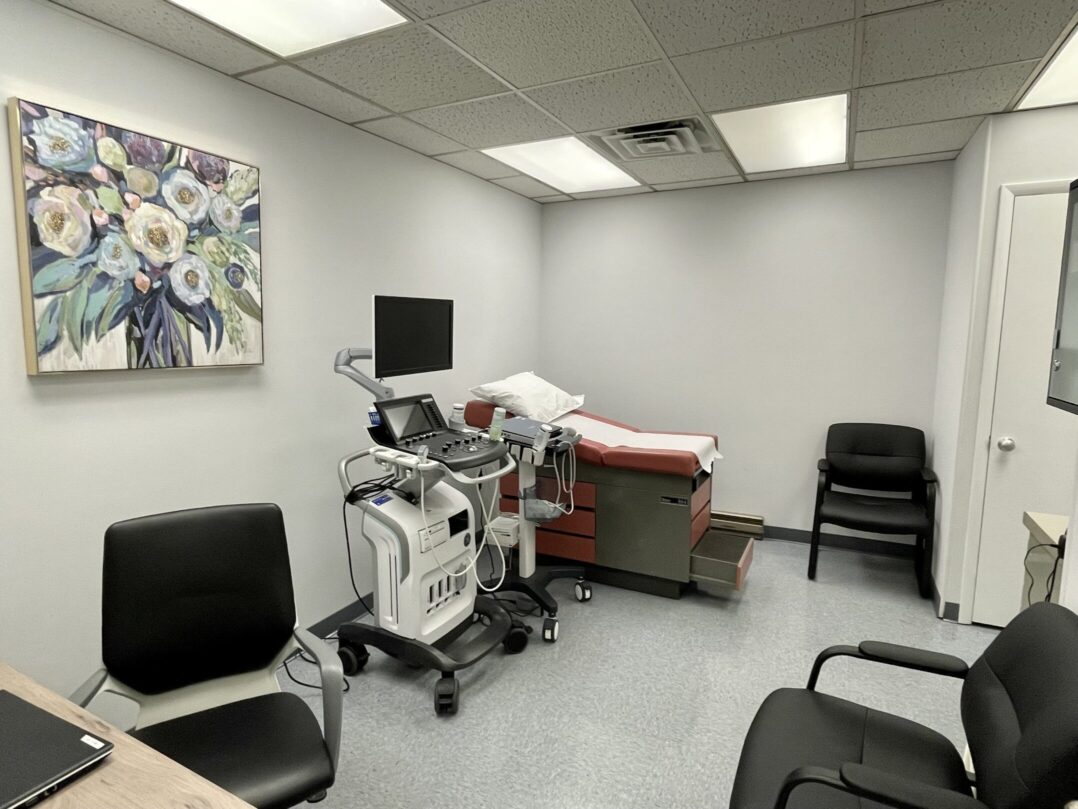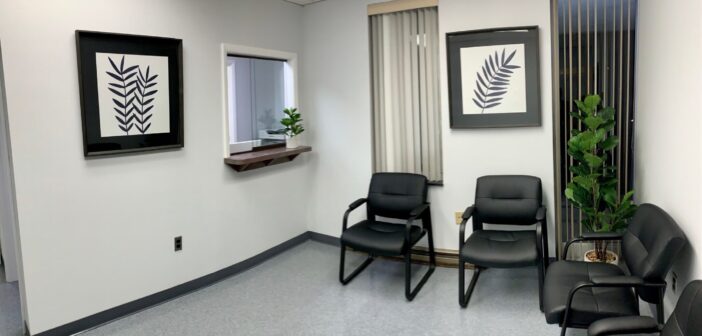A brief history of abortion:
In Ancient Egypt, a woman might try weightlifting, climbing, diving or another physically demanding activity. In Colonial America, a woman might be prescribed an abortion-inducing cedar root and herb cocktail. Today, a woman might take a clinically tested pill or receive services at an abortion clinic to terminate a pregnancy.
In the past three thousand years, even as abortion technology has advanced, the debate about abortion rights has grown into opposing sociopolitical pro-life and pro-choice movements.
In his book, “Abortion Politics,” Ziad Munson, a sociology professor at Lehigh University, uses history to unravel the contemporary polarization surrounding abortion. Munson notes abortion was once considered a private medical procedure.
“One of the major points of the book is that, unlike what partisans on both sides often believe, abortion has not always been a controversial issue,” Munson said.
According to Planned Parenthood, common law in the early United States permitted abortion if a woman had yet to experience fetal movements usually associated with four or more months of pregnancy.
“As other scholars have pointed out, people thought it was a private thing that you would talk about with your family and your doctor,” Munson said. “People didn’t really have opinions about it any more than people have opinions today about open-heart surgery.”
It wasn’t until the 1860s that several states started to pass a variety of ambiguous anti-abortion laws.
Munson said this period was when the medical profession emerged as a scientific field, allowing doctors to flex “special knowledge,” that other competing professionals did not have, to the public and to state officials.
By 1910, abortion was banned nationwide.
Munson said doctors and the American Medical Association are actually responsible for criminalizing abortion in the United States.
“Today, we don’t think about abortion that way as a medical procedure,” Munson said. “We think about it as a moral issue. It’s not just whether or not you need or don’t need it medically, it’s whether you’re a good or bad person.”
Straying further from its history, abortion has become a controversial and highly politicized issue with public debate over court cases like Roe v. Wade and the Texas and Mississippi abortion bans.
On June 24, 2022, the Supreme Court overturned the historic case of Roe v. Wade, which protects the right of a woman to get an abortion.
Violet Kertis, ‘22, is a graduate assistant in the Office of Gender Violence Education & Support. She shared her systemic concerns regarding this decision with The Brown and White.
“I think that having people, particularly old white men, make decisions that they don’t deserve to make, is just incredibly dangerous,” Kertis said. “It’s not going to stop abortions from happening. It’s just going to stop safe abortions.”
Munson said these cases being discussed in political institutions, such as the Supreme Court, reflects abortion evolving from a medical issue into a matter of public debate.
Harsh realities of women with unplanned pregnancies:
With the Supreme Court overturning Roe v. Wade, pregnant women are put under an uncomfortable spotlight.
As a result of the Supreme Court decision, Allentown City Council will be voting on four abortion rights ordinances this fall.
These ordinances aim to protect the right to abortion in Allentown by adding a “buffer-zone” around abortion clinics — to create separation between patients and anti-abortion protestors — and restricting deceptive advertising from pregnancy support centers.
Jon Merwarth, executive director of Bright Hope Pregnancy Support Center in Allentown, has vowed to sue the city in response to the advertising ordinance.
“On the surface, you’d say, ‘if you’re not doing anything wrong, then there’s nothing to be concerned about,’” Merwarth said. “Which is true, except that what is considered deceptive, in some cases, can be subjective.”
Bright Hope’s website states having an abortion may lead to emotional and psychological consequences. A complaint was filed to the state’s attorney general, and this information was deemed deceptive advertising.
Merwarth said this is factual information gathered from the Mayo Clinic, and the real intention is to attack support centers.
He said people mistakenly think pregnancy centers are responsible for overturning Roe v. Wade or are attempting to put abortion clinics out of business.
“It’s misguided,” he said. “They want to shut us down.”
Merwarth explained there has not been an influx of patients as a result of the overturn, and the needs of the women the center encounters have not changed.
Women with unplanned pregnancies, whether they choose to get an abortion or keep the pregnancy, are met with financial, social and psychological repercussions for exercising their rights.
“She came in literally shaking, so nervous, and left calm and relieved,” said Jennifer Davies, remembering a recent client at the Allentown clinic where she works.
Every day, Davies, associate executive director at Bright Hope, sees women walk in the door feeling unsure, frightened and, in many cases, hopeless.
“There’s so much out there — there’s so much noise, so many opinions, so many choices,” Davies said.
To her, the greatest obstacle for many young pregnant women in the Lehigh Valley is lack of health insurance to cover the costs of carrying, delivering and caring for a baby.
“They find they’re pregnant — maybe they’re working, maybe they’re not working — but they don’t have insurance, so they can’t even go to a doctor to see what the next steps are,” Davies said.
In order to begin the process of signing up for state insurance, a pregnant woman needs documentation of a medically verified, positive pregnancy test.
Although urine pregnancy tests can be bought for a few dollars from most drugstores — and according to Planned Parenthood, their results are 99% accurate — the twin pink lines of an at-home pregnancy test can not be used to start an insurance claim. A medical professional is required to perform and read a pregnancy test before the insurance process can be expedited.
After the verified test, more hurdles await these women. Securing health insurance that covers the expenses that come with prenatal ultrasounds and hospital bills is important for women with unplanned pregnancies who choose to keep the pregnancy, especially if they have unpredictable familial or financial situations.
Ash Turner, a patient educator at the Allentown Women’s Center, said someone’s total income from a minimum wage job does not cover childcare costs — some can’t afford the childcare in addition to their personal living conditions.
“That’s assuming that they don’t have a support system, which is, unfortunately, pretty frequent for pregnant people to be in a position where either they have an unwilling co-parent, or they may not have support within their family,” Turner said.
Merwarth said the Bright Hope staff often encounter women who had a relatively stable home life, but after becoming pregnant, experienced a fallout with their partner or parents, leaving them unable to provide for themself, let alone a baby.
According to Merwarth, many of these expectant mothers find themselves alone, and sometimes even homeless.
“It’s really not a matter of whether I want to keep my baby or not,” Merwarth said. “That’s not the issue for a lot of people. They need resources.”

A bedroom provided as part of Bright Hope Pregnancy Support Center’s transitional housing program. The center provides free and confidential services to people dealing with unplanned pregnancies. (Courtesy of Jon Merwarth)
Bright Hope offers parenting classes and counseling services and provides the food, clothes, diapers and other essentials for women who choose to keep their baby. Their Door of Hope Transitional Housing program provides a temporary group home setting for the women who find themselves with no place to live.
The center does not refer for or perform abortions.
Eleven miles away, however, women of the Lehigh Valley can be referred to and receive abortion services at the Allentown Women’s Center.
Yet, financial barriers also challenge the women who choose to terminate their pregnancy.
Turner said abortion prices can generally range from $500 to over $2000, especially in states where medical care does not cover the cost of abortion.
She said some people get caught in a dilemma of whether or not they can terminate their pregnancy based on the price.
If they are too far along for a local clinic to perform the service, or legal restrictions prevent them from receiving care, a woman may need to cross state lines to receive abortion services, adding to the costs.
Turner said the center conducts need assessments and works with third-party organizations to provide funding for individuals based on their qualifications.
Regardless of whether an individual decides to parent, adopt or abort, pregnant people face other pressures, such as political polarization and societal stigma, which lead to more stress.
Merwarth said people become issue-focused rather than person-focused, essentially causing more harm.
“A lot of people do suffer emotionally and psychologically, the statistics say that,” Merwarth said. “If you’re so issue-oriented, in the end, you’ve already put this person in a position where they’re shamed.”
Turner said many psychological challenges stem from a lack of information and from misinformation. This presents challenges for pregnant women who are trying to learn about the options available in their community.
She explained some organizations create false abortion clinics, schedule appointments and end up encouraging women to keep their pregnancy.
“We’ve heard reports of people being essentially forced to stay until they agree that they’re going to continue the pregnancy,” Turner said. “They’ll essentially shame them into changing their decision.”
Turner said these clinics, in addition to abortion protesters, act as a source of misinformation for pregnant women.
One of the main goals of the Allentown Women’s Center is to educate the community, Turner said, and to counter the false information that has been spread about abortion.
Bright Hope and the Women’s Center both recognize the issues that pregnant women face, and they provide resources and educational programs to alleviate these financial, social and psychological challenges.
“Our focus is on caring for the mom, or the mom and dad, or the mom and the grandparents, who is there in front of us,” Merwarth said. “Meeting their needs, getting to know them and finding what their situation is, listening to them first and creating a safe place where they feel respected.”

An examination room at the Bright Hope Pregnancy Support Center. The center provides free and confidential services to people dealing with unplanned pregnancies, not including abortions. (Courtesy of Jon Merwarth)






Comment policy
Comments posted to The Brown and White website are reviewed by a moderator before being approved. Incendiary speech or harassing language, including comments targeted at individuals, may be deemed unacceptable and not published. Spam and other soliciting will also be declined.
The Brown and White also reserves the right to not publish entirely anonymous comments.